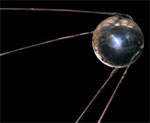
This Boeing 747-400, photographed at Sydney airport last Friday, belongs to Thai Airways International. If you happen to have decent eyesight, you can confirm this by the fact that it has “Thai” painted on the side. Ownership is not about paint, however.
If you paint “Thai” on my side, I do not then become the property of Thai Airways, not even if you’re employed by Thai Airways to do so. Paint is just paint, whereas ownership of property is an abstract concept. A concept which can be supported or asserted by paint or other physical signs, but still an abstract concept which can only be agreed upon by sentient beings.
But what about another concept: nationality?
Nationality is not about paint either. Paint “Thai” on my side if you like. If you use the right brush I might even enjoy it. But I won’t become even remotely Thai. However is nationality something which is just agreed upon? Or is there something essential — in the core meaning of the word, having to do with essence — which makes someone immutably Thai or Australian or Czech or Chinese?
And how does nationality relate to similar concepts, such as ethnicity or race or culture?
I usually don’t think about these categories. The variation within them outweighs the supposed differences. People of every nationality range from amiable to arsehole. However that aircraft — that specific aircraft — has brought it all into focus.
Continue reading “How this ordinary aircraft will change my life”

